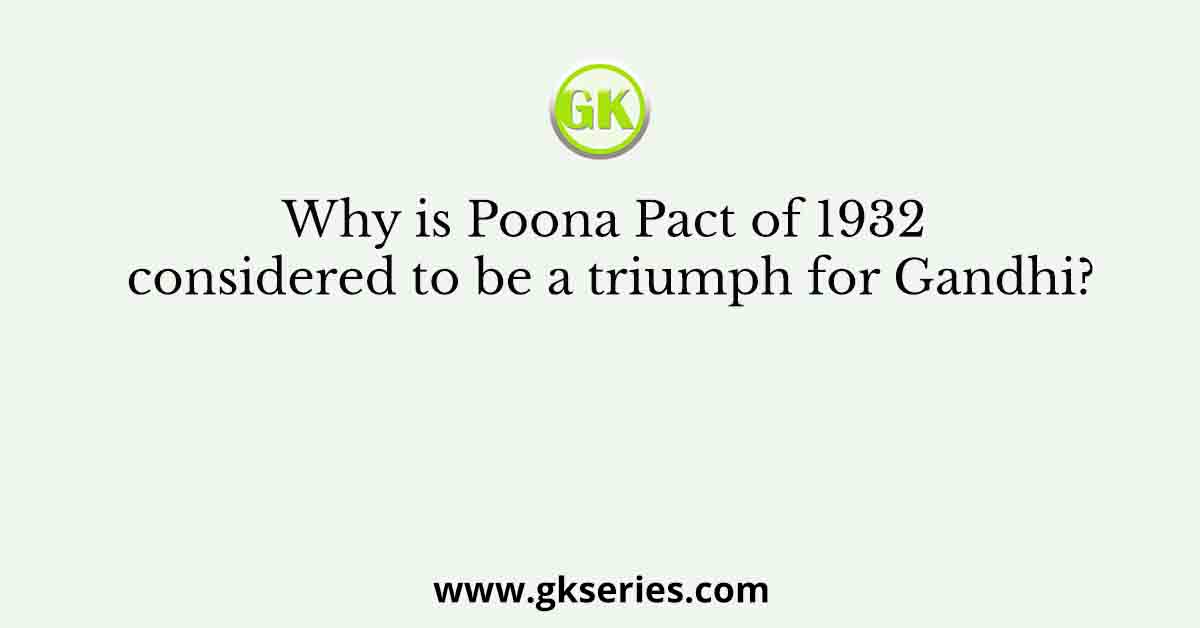
Q. Why is Poona Pact of 1932 considered to be a triumph for Gandhi?
(a) It was a compromise formula acceptable to both Ambedkar and Gandhi.
(b) It attempted to smoothen the Hindu Muslim relations.
(c) It brought Congress and communist leaders closer.
(d) It was a pact made with Indian capitalists to obtain their cooperation in national movement.
Ans: (a) It was a compromise formula acceptable to both Ambedkar and Gandhi.
Explanation:
The correct option is It was a compromise formula acceptable to both Ambedkar and Gandhi.
The Poona Pact of 1932 is considered a triumph for Mahatma Gandhi because it resolved a significant conflict between him and Dr. B.R. Ambedkar regarding the issue of separate electorates for the dalit community in India. The British government had introduced the Communal Award, which provided for separate electorates for dalits, granting them reserved seats in the legislature.
Gandhi opposed separate electorates, fearing that it would further divide Indian society along caste lines. He believed in the principle of joint electorates, where all communities would vote together. Ambedkar, representing the dalit community, demanded separate electorates as a means to ensure adequate political representation and protection of their rights.
The Poona Pact was a compromise reached between Gandhi and Ambedkar, mediated by the British government. It retained the concept of reserved seats for dalits but within the framework of joint electorates. This compromise formula was acceptable to both Gandhi and Ambedkar, leading to the withdrawal of the demand for separate electorates by the dalit community.
The Poona Pact was considered a triumph for Gandhi because it prevented the division of Indian society on communal lines and ensured the unity of the nation. It was seen as a victory of Gandhi’s ideology of promoting social harmony and the eradication of caste discrimination.





